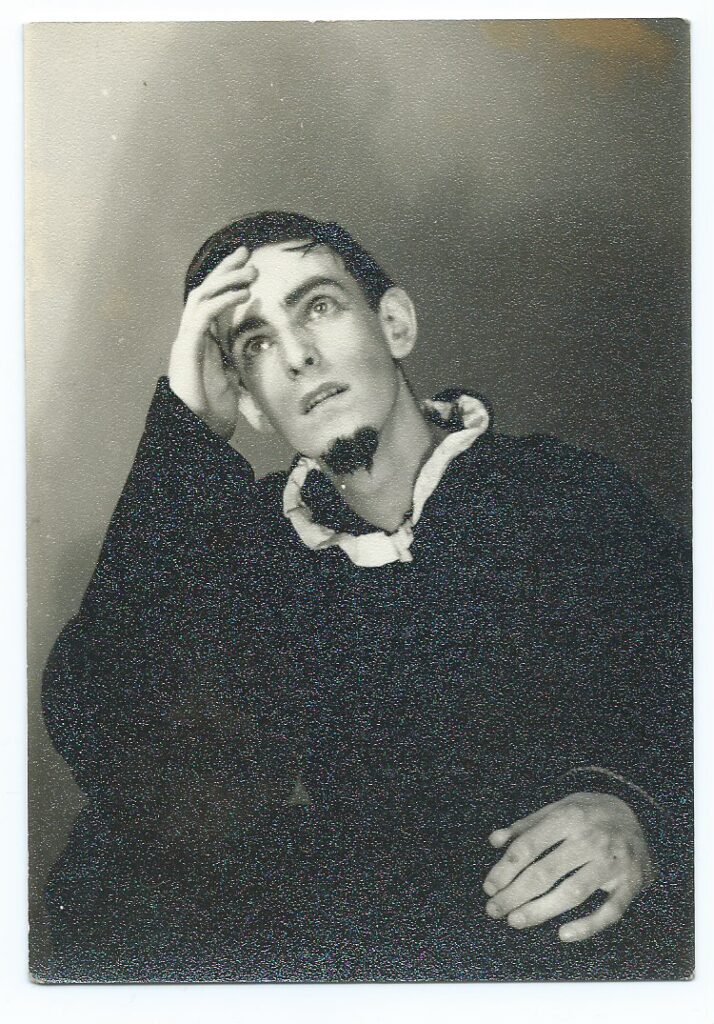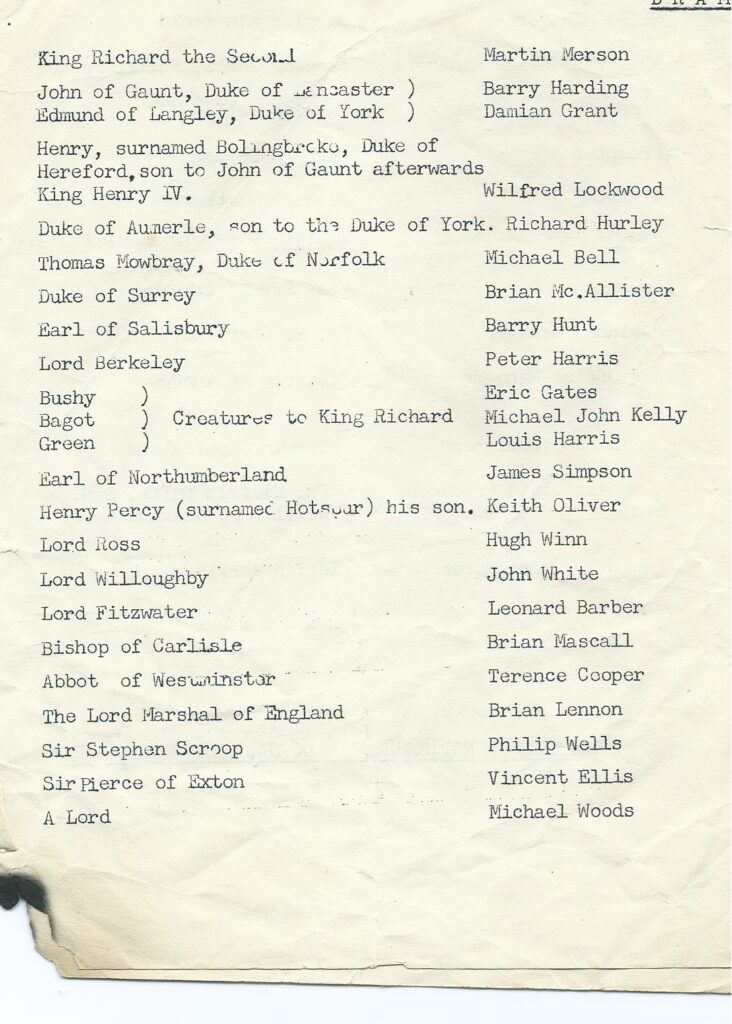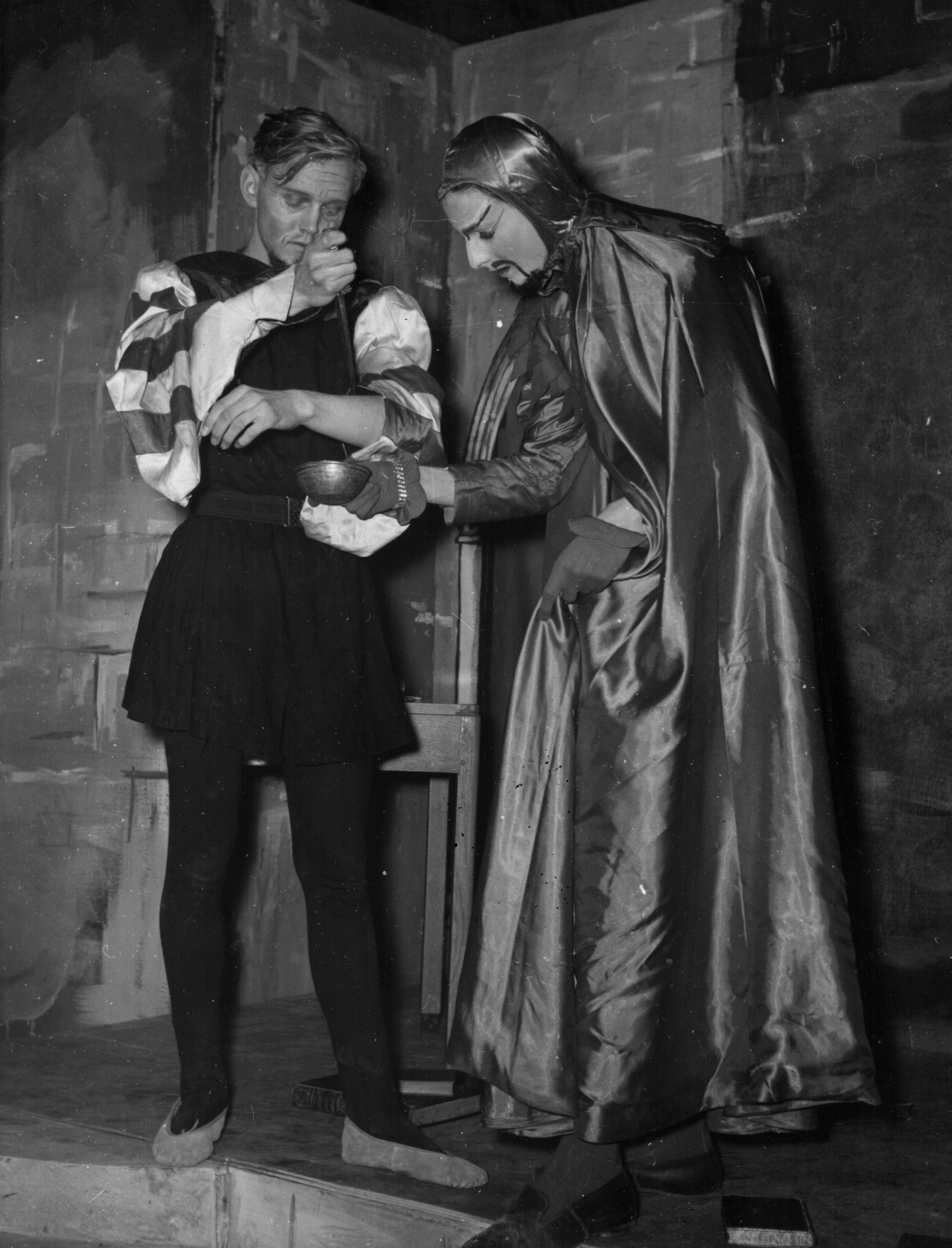Martin Merson (died November 2024)
16th December 2024 by Damian Grant

We regret to report the death, in November, of Martin Merson, who made his mark at St Mary’s in the late 1950s—most notably with leading roles in the school plays which were produced very successfully at the time by drama tutor Adrian Jarvis. Martin, unusually tall and thin, made a haunting Mephistopheles to Wilf Lockwood’s studious Doctor Faustus. The next year, he excelled as the central character in Richard II, both as the headstrong king early on in the play and then later on as the soulful, self-pitying deposed monarch. Martin was a gifted impersonator and loved dressing up, and once went to a fancy-dress party (with an acolyte) in full ecclesiastical robes, the pair as Urbi et Orbi.
Martin’s physique made him allergic to all sports, and in the masculine, sporty St Mary’s of his day he learned to defend himself with uniquely original wit and humour against any disparaging or injurious remark. Later on we would realize he was the perfect prototype of John Cleese, and indeed for Martin the school served in his imagination as Fawlty Towers before its time.
Martin later went to Hull University, where he read physics but again proved his versatility by winning first prize in a poetry competition judged by Philip Larkin. It is regrettable that he did not exploit this talent further. He spent some time travelling, falling in love with (and in) Scandinavia, before becoming an exemplary dedicated teacher—first in the sciences, and then in education itself; the theory and practice of which became his lifelong commitment. He taught in Colleges of Education before joining Warwick University (where he was a colleague of fellow St Mary’s old boy Michael Bell) for the last phase of his career.
Martin was a congenial colleague and stimulating lecturer, who made several trips abroad for the British Council which often yielded interesting encounters. He continued to travel to Scandinavia, to (then Czecho-) Slovakia, and also Greece, where he made a habit of taking holidays. But apart from a brief trip to Tunisia, to visit this particular old boy, I don’t think he ever ventured beyond Europe.
Martin was a faithful but demanding friend, who made no secret of his convictions and would not adapt these for social purposes; some relationships fell by the wayside in consequence. It was his idealistic view of women, perhaps, which never allowed him to marry, deeming himself unworthy of—or simply unprepared for?—the status. But he maintained several important relationships with women throughout his life; especially with the one he referred to as ‘the cat,’ Petra, whom he treated as his adoptive daughter, in whose education he played a significant part and in whose successful career as an architect (not to mention her marriage and child) he took great satisfaction.
Martin walked through the park in Leamington every day to buy his Guardian, and remained a constant critic of socially indifferent governments. Only towards the end were these rituals interrupted. And there came a time when, exhausted by medical interventions, and a certain weariness with the world, Martin gave up on many (but not all) of his life-long social contacts. He will be mourned as he is missed by these, conscious as we are that we have lost a friend who presented a very rare combination of humour and delicacy, sensitivity and perceptiveness, underlain as these were no doubt by a profoundly human melancholy.
Damian Grant


Martin sounds an unusual sort of chap with more irregularities than smooth surfaces. It’s very much to his credit that St Mary’s and life weren’t able to grind the irregularities off him. And to his and Damian’s credit that they were able to maintain such a long friendship. It would have been interesting to have known him.
I hope Damian won’t think it inappropriate of me to use this comment on his appreciation of his late friend as a way of reminding him of my late brother, Phil, who died in September 2019 and was one of his contemporaries at St Mary’s. Whether they were friends, I don’t know. Damian’s younger brother Stephen and I were also contemporaries but not what you’d call friends.
I went to the centenary do at the rugby club in Sidcup some weeks back and that has caused me to reflect on St Mary’s. The sport, the plays, the CCF were all attempts to be greater than the school had any real right to be. But it did have pupils such as Martin, encouraged by teachers such as Adrian Jarvis, and maybe that was enough.